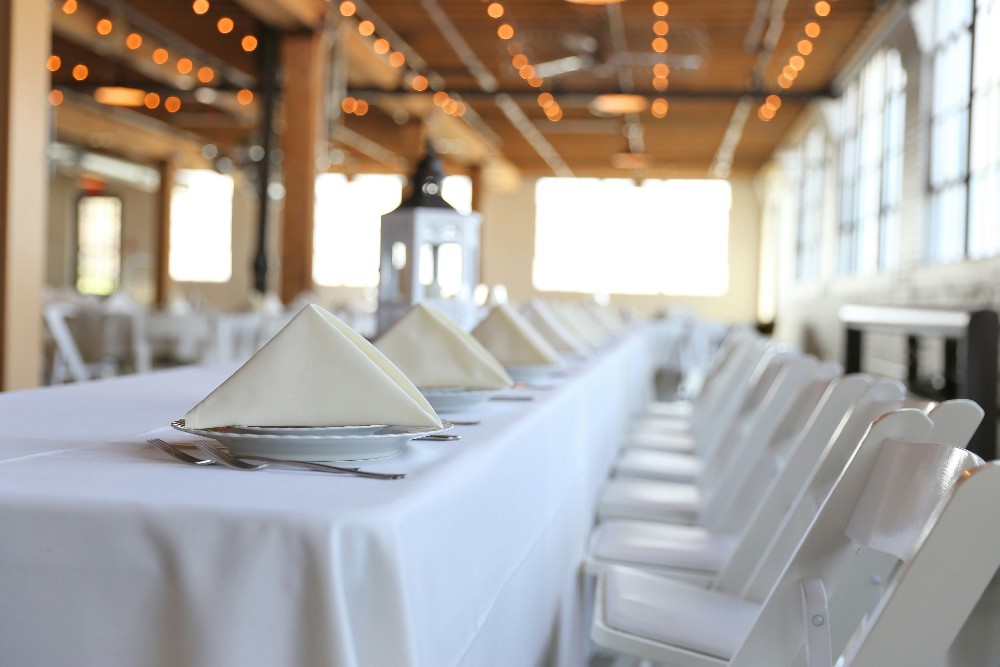
Written by: Cara Tirona
April 23, 2025
Choosing the right event date is a pivotal step in event planning that can significantly impact attendance, budget, and overall success. Whether you're organising a corporate conference, a social gathering, or a fundraising gala, selecting the optimal date requires careful consideration of various factors. In this guide, we'll explore essential tips to help you pick the perfect function date for your next event.
Importance Of Choosing the Right Date
The date of your event sets the tone for the entire experience and plays a crucial role in its success. With a well-chosen date, you can enhance visibility, boost attendance, and create a memorable experience for your guests. Here's why selecting the right date is essential:
Maximising Attendance
The timing of your event can be a significant influencer on who will attend. For instance, scheduling your event during school holidays or major holidays might lead to low attendance as people are often preoccupied with travel or family gatherings. On the other hand, choosing a date when attendees are typically free, such as weekends or evenings, can help maximise participation.
Budget Considerations
Selecting a date for your event also has direct implications on your budget. The time of year and specific day can significantly affect costs related to venue rental, catering, and additional services. Different seasons can bring varying prices for venues and services. For example, summer and fall are often peak times for events, leading to higher venue rental fees and catering costs due to increased demand. If you are looking to save money, consider planning your event during the off-peak season, usually late winter or early spring when venues might offer discounts.
Venue Availability and Pricing
In addition to seasonal cost fluctuations, specific dates can also influence the availability and pricing of venues. Popular venues may book well in advance for high-demand weekends, meaning if you have a rigid date in mind, you may find your options limited or excessively priced. If your heart is set on a particular venue, explore weekday or off-peak dates, which can sometimes yield unexpected availability and savings.

Factors to Consider in Event Date Selection
When it comes to selecting the date for your event, several factors come into play beyond just personal preferences or convenience. Being mindful of these considerations can significantly impact the overall success of your gathering. Here are key factors to evaluate:
Target Audience and Their Availability
Understanding your target audience is crucial when selecting an event date. Consider their demographics, preferences, and typical schedules. Are you aiming for corporate professionals who may prefer a weekday event? Or perhaps families who generally have commitments during the week?
Conducting a brief survey or gathering insights about when your audience is most likely to be available can aid you in choosing a date that’s more accommodating to them. This is particularly important for events like workshops, product launches, or community gatherings, where participation levels significantly impact the event's success.
Local Events and Holidays
Researching local events and holidays that may coincide with your planned date is essential. Major events such as festivals, sports games, or community activities can create fierce competition for your event attendees. Likewise, public holidays can either attract more people looking for things to do or deter them due to existing plans.
Ensure there’s no overlap that can distract potential participants or impact logistics. For instance, planning an event the same weekend as a popular local festival could mean fewer attendees, as many will choose the more established event.
Seasonal Influences and Weather Conditions
The time of year can greatly influence the overall feel of your event. Seasonal weather patterns can dictate indoor or outdoor event planning, affecting your choice of activities, venue, and even catering options.
Outdoor Events
If you’re considering an outdoor event, it’s vital to account for the typical weather conditions during your chosen season. Spring and summer can offer beautiful weather, but also unpredictability such as sudden rain showers, meaning tents and contingency plans may be necessary. Conversely, fall can provide a picturesque backdrop with colourful leaves but might come with chilly temperatures as the season progresses, which could necessitate outdoor heaters or cosy settings.
Indoor Events
If your event will be indoors, think about how the season can affect attendance. The holidays, for example, can bring a surge of interest for festive gatherings, yet they also fill up many people's calendars. Conversely, winter months may invoke a desire for gatherings to escape the cold, making it a prime opportunity for events targeted at warm indoor activities.
Catering Considerations
Seasonal ingredients can also play a significant role in your event planning. Opting for seasonal foods helps with budgeting and ensures freshness, which can enhance your menu offerings. For instance, summer events could feature refreshing salads and grilled dishes, while winter might lean towards hearty comfort foods and warm beverages.
When selecting your menu, consider local agricultural trends and availability. Many venues are increasingly promoting farm-to-table practices, which not only support local businesses but also allow you to provide dishes that highlight the best of what’s in season. This approach can help create a more memorable experience for your guests and elevate your event's overall appeal.

Cultural and Seasonal Events
Understanding the cultural significance of certain dates or seasons can also guide your planning decisions. For example, incorporating seasonal or cultural festivities into your event can resonate well with attendees.
Different regions might celebrate unique festivals or cultural events tied to seasonal changes. For example, spring might be associated with blooming flowers, leading to events like cherry blossom festivals or spring fairs. Alternatively, planning an event around traditional harvest celebrations in the fall can not only attract attendees but also enhance the event experience by aligning with community values.
Tips When Choosing the Ideal Event Schedule
When it comes to scheduling your event, timing can significantly impact attendance and overall success. Here are some practical tips to ensure you choose the best date for your gathering:
Research Local Holidays and Events
Before finalising your event date, research local holidays and community events that may coincide with your plans. Events such as parades, festivals, or major sporting events can significantly affect attendance, as potential guests may have other commitments. Additionally, check for public holidays that might create conflicts or opportunities for larger gatherings.
Consider Your Target Audience
Tailor your date choices according to the characteristics of your intended audience. For instance, if your event is family-oriented, weekends and school holidays might be more favourable. Conversely, if you’re hosting a corporate event, weekdays may be more appropriate to attract business professionals.
Weather Patterns and Climate
Be mindful of the typical weather conditions during your chosen season. Although summer may appear to be a popular time for outdoor events, unexpected rain or heat waves can dampen the experience. Research historical weather patterns for your location to select a date with the least likelihood of extreme weather disruptions.
Flexibility with Dates
If possible, consider having backup dates. This flexibility can be a lifesaver in the event of unforeseen circumstances, such as inclement weather or venue availability issues. Not only does this allow for quick adjustments without compromising the event's integrity, but it also demonstrates a proactive approach to planning.
Time of Day Considerations
The time of day can significantly influence the atmosphere of your event and affect attendee turnout. Morning events may appeal more to specific demographics, such as professionals attending a networking breakfast or families looking to start their day with fun activities. Conversely, evening events might attract a different audience, including those looking for a night out or social gatherings. Analyse what time slots align best with your event's purpose and audience preferences.
Venue Availability
Your choice of venue can determine your event date availability. Popular venues are often booked months or even years in advance, especially during peak seasons. Reaching out early to confirm potential dates with your desired location can provide you with a clearer picture of when is feasible. Sometimes, venues may offer discounts or incentives for booking on less popular days, which can also help you stretch your budget further.

Impact of Major Events
Keep an eye on major events occurring in your area that might draw crowds away from your event, such as concerts, sports games, or national conferences. Scheduling your event on or around these dates might pose challenges in attracting your desired audience. It's advisable to research local calendars and community events well in advance to identify potential conflicts.
The 5 C’s Of Event Management That Will Help You Host Like A Pro
Holidays and Observances
Holidays can significantly influence attendance at your event. While some holidays, like Independence Day or New Year's Eve, may provide additional opportunities for festivities, other holidays, such as Thanksgiving or major religious celebrations, may result in lower turnout due to travel and family commitments. Assess the significance of holidays relative to your target audience and ensure you choose a date that maximises participation.
Choose the Right Day of the Week
The day of the week you select for your event can greatly impact attendance, engagement, and overall success. Understanding your target audience's habits is key to making this decision.
Consider Your Audience's Schedule
Different demographics have varying availability throughout the week. For instance, corporate events or seminars are often more effective on weekdays, particularly Tuesday to Thursday, when professionals are more likely to be available and engaged. In contrast, weekend events may be more appealing for families and informal gatherings as people typically have more free time to attend social events.
Assess Industry Trends
Various industries have their own preferences when it comes to scheduling. For instance, tech events often coincide with major industry gatherings, so exploring trends within specific sectors can help you determine the optimal day. Similarly, weddings and stand-up comedy shows tend to flourish on Saturdays, while workshops and training sessions may find success on weekdays. Stay informed about these trends to best align your event with your target audience's expectations.
Impact of Seasonality
Seasonal variations can also affect the best day of the week for events. For instance, summer weekends are popular for weddings and outdoor festivals, whereas late fall and winter evenings might see more indoor celebrations and holiday gatherings. Monitoring seasonal patterns in your area can guide you in selecting days that synergise with broader seasonal interests.

Weekend vs. Weekday?
When deciding between a weekend or a weekday event, it’s crucial to consider the nature of your event, the preferences of your target audience, and the potential conflicts that may arise on certain days. Here are some factors to keep in mind:
Nature of the Event
The type of event you are hosting plays a significant role in determining whether a weekend or weekday is more appropriate. For example:
Corporate Events: Business meetings, conferences, and workshops often work best during weekdays, particularly in mid-week. This is when professionals are typically in work mode and can dedicate their time to learning and networking without the distractions that a weekend might bring.
Social Gatherings: For events like birthday parties, family reunions, or casual get-togethers, weekends tend to be more favourable. Since most people work during the week, Saturdays and Sundays provide a better opportunity for friends and family to gather without conflicting with job commitments.
Educational Workshops: These can sometimes be flexible but are usually held during the week when participants are more motivated to engage in learning. Alternatively, if you target a specific audience—like students—weekend events may attract more attendees.
Weddings: The majority of weddings occur on Saturdays. Because these are significant life events, couples often choose weekends to ensure that the maximum number of guests can attend. Seasonal considerations also play a role, with many couples trying to align their weddings with holiday or vacation periods.
Pros and Cons of Weekends
Choosing to host your event on a weekend comes with a unique set of advantages and disadvantages. It’s essential to weigh these factors to determine if a weekend is the right choice for your specific occasion.
Pros of Weekend Events
Higher Attendance: Weekends generally allow more people to attend, as most individuals are off from work. This is particularly beneficial for social events like weddings, parties, or community functions, where the presence of guests is vital.
Relaxed Atmosphere: Weekends generally offer a more relaxed vibe, encouraging attendees to engage and participate fully without the stress of work commitments looming over them.
Flexibility in Timing: Evening events on weekends often allow for later start times, accommodating those who may have other commitments during the day.
Cons of Weekend Events
Competing Events: Saturdays and Sundays can be bustling days for events, meaning your gathering might compete with festivals, concerts, or sports games, which could impact attendance.
Family Obligations: While many people are free on weekends, family commitments like outings or gatherings can also deter attendance. This is particularly relevant around holiday weekends.
Pros and Cons of Weekdays
While weekends may seem like the obvious choice for hosting events, weekdays also present unique opportunities and challenges. Understanding the advantages and disadvantages of scheduling your event on a weekday can help you make a more informed decision.
Pros of Weekday Events
Less Competition: Weekdays typically don’t have as many events scheduled, which can provide a clearer path to securing attendance without competing for attention with other gatherings. This can be particularly beneficial for corporate events, workshops, or networking sessions.
Focused Attendance: Attendees may be more focused and less distracted on weekdays, especially in a professional or educational context. This can lead to more productive interactions and discussions, making it an ideal choice for meetings and training sessions.
Cost Efficiency: Venues may offer better rates for weekday bookings, translating into potential savings for event organisers. Lower demand during these times can lead to discounts on catering and audiovisual services as well.
Cons of Weekday Events
Work Commitments: Many people have work obligations that can limit their availability during weekdays. They may find it challenging to attend evening events if they have long workdays or early mornings ahead.
Fatigue Factor: After a long week at work, attendees may be less inclined to participate in evening events, especially if they require significant engagement or energy. This could affect the overall atmosphere and interaction levels if participants are tired or preoccupied with the work week.
Family Responsibilities: For many, weekdays are packed with family duties, such as childcare, school pickups, and dinner preparations. This can make it challenging for parents or caregivers to commit to attending events during the week, especially in the evenings.
Limited Flexibility: Unlike weekends where people have the option to take the day off or plan around an event, weekdays often come with stricter schedules. This can result in lower attendance as individuals may find it tough to rearrange prior obligations or commitments.
Travel Considerations: Weekday events can complicate travel plans for guests coming from out of town, as taking time off work may not be feasible. This could lead to a smaller and less diverse audience, particularly if your event targets attendees from various locations or industries.

Peak vs. Off-Peak Seasons?
Timing an event within the right season or month can greatly influence your turnout and overall success. Consider the following aspects:
Pros and Cons of Peak Season
The peak season is the time of year when demand for event venues and services is at its highest. This period is often characterised by several key factors that can significantly impact your decision-making process when selecting a date for your event.
Pros of Peak Seasons:
Increased Attendance: During peak seasons, people are generally more inclined to attend events. This is due to various factors such as holiday spirit, weather conditions, or even the cultural significance of certain months. Popular dates can lead to higher enthusiasm, which positively impacts engagement and atmosphere.
More Vendor Options: Many venues and service providers experience a rush during peak seasons, which means that they’re often eager to accommodate events. This leads to more options when selecting caterers, decorators, and entertainment, giving you the chance to tailor your event more closely to your vision.
Thematic Opportunities: Events held during popular seasons can benefit from built-in themes. For instance, an autumn harvest gala or a summer beach party can leverage the natural ambience of the season, making planning easier and creating memorable experiences for attendees.
Cons of Peak Seasons:
Higher Costs: With increased demand comes increased pricing. Venues, catering services, and accommodations may charge a premium during peak times, eating into your budget. Depending on your goals and necessary resources, this can pose a significant challenge.
Availability Issues: Popular dates tend to be booked up quickly during peak seasons, limiting your choices for venues and vendors. If you have your heart set on a specific location or service provider, you may need to reserve your spot months in advance, which can be a challenge if you’re trying to coordinate a larger event with multiple stakeholders.
Competition: More events take place during peak seasons, which can dilute your audience. With numerous options available, potential attendees may struggle to choose between events, leading to decreased attendance. It’s important to evaluate what other events are happening on your chosen date and across your target demographic.
Mixed Signals for Target Audience: While planning a seasonal event, you must also consider the demographics and interests of your audience. Some guests may have prior commitments or preferences that conflict with your event date. Understanding the diverse backgrounds of your audience and their availability during high-demand periods is crucial to ensuring inclusivity.

Off-Peak Seasons: Embracing a New Opportunity
While peak seasons certainly present advantages, off-peak times can also offer fresh opportunities. Choosing to host your event during these less busy periods can often lead to unique benefits:
Pros of Off-Peak Seasons
Cost Savings: One of the most compelling reasons to hold your event during off-peak times is the significant cost savings. Venues, catering services, and suppliers are often eager to fill their schedules during these periods and may offer discounted rates or packages, allowing you to allocate your budget more efficiently.
Greater Availability: With fewer events competing for space, you’ll likely find more venue options available to you. This enhances your chances of securing the perfect location that aligns with your vision. You can also have more flexibility with date selection, making it easier to coordinate with key stakeholders and guests.
Less Competition for Attention: Since fewer events are happening during off-peak times, your event is more likely to stand out and attract attendees. Without the overwhelming number of options to choose from, potential guests will find it easier to prioritise your event, leading to better attendance and engagement.
Unique Experiences: Hosting your event in the off-season allows you to create themed experiences that contrast with typical seasonal events. For instance, a winter wonderland party during a quieter chilly season can provide guests with a refreshing diversion from their usual holiday gatherings.
Enhanced Networking Opportunities: With fewer events to compete against, off-peak seasons can foster more intimate gatherings. This environment creates a conducive atmosphere for networking, allowing attendees to form meaningful connections without the distractions common in busier times. When guests feel at ease and not rushed, they are more likely to engage in valuable conversations and collaboration.
Less Stress and Pressure for Planning: Event planning can be a hectic process, especially during peak seasons when demand is high. Choosing an off-peak time reduces the stress often associated with last-minute arrangements and the pressure of high-stakes competition for resources. This can lead to a more enjoyable planning experience, which often translates into better event execution.
Better Venue Options: Off-peak seasons typically yield a wider array of venue options. Many popular event spaces that may be booked solid during peak times often have greater availability during off-peak periods. This not only gives you the chance to secure your dream venue but also allows for potential negotiation on pricing or additional perks.
Cons of Off-Peak Seasons
Limited Availability of Certain Vendors: During off-peak seasons, some suppliers and vendors may also be less available or operate on reduced schedules. This can make it challenging to secure the specific caterers, entertainment, or audiovisual services you had in mind. It's important to assess if your preferred vendors can accommodate your chosen date or if you need to compromise on quality or service.
Weather Considerations: Depending on the time of year and your event's location, off-peak seasons can come with unpredictable weather. For instance, winter events may encounter snowstorms, while spring events may face rain. This unpredictability can impact attendance, as well as your contingency planning for outdoor venues or logistics.
Lower Perceived Value: There might be a perception that off-peak events are of lesser value or significance. Guests may assume that because the event is held during a quieter time, it won't be as memorable or engaging as one held during peak season. As a host, you may need to put extra effort into marketing your event to ensure attendees recognise its importance and value.
Holiday Conflicts: Moreover, choosing an off-peak time when holidays are nearby can lead to additional complications for event planners. Certain holidays may interfere with your planned date, making it difficult for attendees to fully engage.
Conclusion: Simplify Event Date Selection with VenueNow
Choosing the right date for your event doesn't have to be overwhelming. By considering your audience's availability, avoiding conflicts, and planning ahead, you can select an event date that maximises attendance and success.
Ready to find the perfect venue for your ideal event date? VenueNow offers advanced search filters to help you discover and book the best venues available. Let us make your event planning journey smoother and more efficient.
Find and book your perfect venue with VenueNow today!
Looking for an event venue to hire?
VenueNow has you covered with over 2,000 venues across Australia ranging from large event spaces to small meeting rooms. Find your perfect venue for hire faster than anywhere else.
Follow us on social media to stay up to date with the latest news
Customers
Want to get in contact?
Call our support team on 1300 647 488 during business hours AEST.
Follow Us
© Copyright VenueNow 2026 | SPARE GROUP PTY LTD | ABN 22 607 830 302











